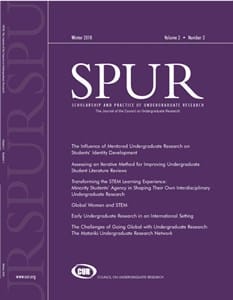SPUR (2018) 2 (2): https://doi.org/10.18833/spur/2/2/4
For 50 years, Smith College’s Summer Research Fellowship (SURF) has provided undergraduate women scientists the opportunity for an immersive experience to conduct independent research under the mentorship of science faculty and staff. This article highlights summative assessment data on SURF program outcomes as well as the institutional planning and responses that followed from careful consideration of SURF’s success and challenges. SURF participation was associated with a full range of student benefits, including a higher overall college gradepoint average, greater advanced research participation, and increased likelihood of completing an advanced degree. Evidence of these powerful and lasting student impacts associated with the SURF program was integral to divisional strategic planning within the sciences and helped propel curricular innovation broadly, creating faculty and institutional investments in a broad range of cuttingedge pedagogical approaches that are student-centered and inquiry-driven.
More Articles in this Issue
No posts found


